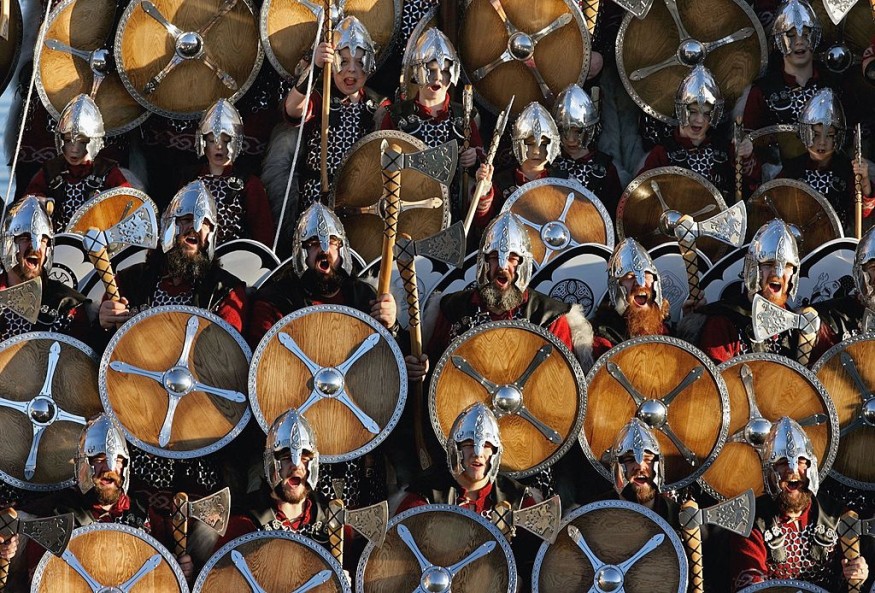A recent study has revealed that the Viking round shields found in a renowned ship burial in Norway were not just ceremonial, which was contrary to what was previously believed.
The dozens of wooden shields discovered in 1880 within the Gokstad ship in the southern region of Norway were likely covered with untanned cattle hide and utilized in close combat battles to protect warriors, rather than just as symbolic items.
This fresh understanding of the shields was shared in an article, which is titled "The Viking Age Shields From the Ship Burial at Gokstad: A Re-examination of Their Construction and Function" published in the Arms and Armour journal on March 24th.

Reanalysis of Viking Round Shields Reveals Its Real Purpose
Rolf Warming, a doctoral student of archaeology at Stockholm University, told Live Science in an email the Gokstad shields are in line with the traditional Germanic flat round shield used in combat during the early 3rd to late 13th centuries. There were 64 shields tied along the top edge of the hull of the ship, possibly for each crew member aboard.
It is believed that the vessel was once used at sea, most likely for warfare, trade, and transportation. However, around 900, the ship was pulled on land to serve as the burial site for a Viking king.
Warming's re-examination of the 1,100-year-old wooden Viking round shields reveals that they consisted of tapered wooden planks, painted black or yellow, with an iron hemisphere and a wooden handle on one side. Although only one handle has survived, Warming believes that the design made the shields lightweight and easy to maneuver.
Moreover, he discovered evidence that the shields were originally covered in a thin rawhide layer, which would have reinforced their planks and rims.
The discovery of the rawhide layer and other details such as stitching holes and a chamfered rim debunks previous beliefs of archaeologists that the shields only had a ceremonial function. Warming suggests that the Gokstad shields were meant for combat and not just for decoration. He proposes that they were part of the ship's equipment and used by the crew at sea or on land.
Overall, the Gokstad shields follow the typical design of shields used in warfare during the Viking era and were not just ornamental pieces.
READ ALSO : Vikings Sailed With Their Pets to England From Scandinavia More Than 1,000 Years Ago, Bone Analysis Reveals
Understanding Shield Constructions of the Viking Age
Warming cautioned that his findings were not conclusive evidence that ancient Viking shields were used in battle, as per Ancient Origins. However, his re-examination of these shields emphasizes the need for a more nuanced understanding of their construction and purposes during the Viking Age.
The Vikings were raiders who relied on ships like the one found at Gokstad in Norway. While not all Norse people were Vikings, raiding for treasures and slaves became a common practice in Scandinavia until the conversion to Christianity in the 10th century.
Warming wrote in his paper that more in-depth research into Viking Age shield technologies is needed, which underlines the significance of his preliminary findings.
RELATED ARTICLE: Ancient Viking Helmet is Dated Back to the 10th Century
Check out for more news and information on Vikings in Science Times.











